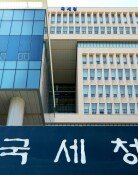[Opinion] Will We Do Nothing about the `Water Crisis?`
[Opinion] Will We Do Nothing about the `Water Crisis?`
Posted January. 11, 2002 10:46,
The ancient Greek philosopher Thales (640 BC – 546 BC) said, `Water is the fundamental substance that represents all life`.
Water is the origin of all life forms and the source of human life. Human beings can survive for only a week without water.
Without water, the human body becomes completely dehydrated, its metabolism breaks down, and eventually dies due to the accumulation of toxins.
The four places where human civilization began were all regions with abundant water supplies. It is also a historical fact that the kingdom that controlled the Han River in the Korean peninsula ruled the entire land.
One cannot overemphasize the importance of water even today when our society has become industrialized and urbanized. We do not have unlimited quantities of water. Its quality and amount are both limited and we cannot afford to overlook this fact.
The World Bank has recently issued a warning about the problem of water supply. It warned, `If the reason for war in the 20th century was fuel, the reason for war in the 21st century will be water`.
Also the UN Environment Programme reported at the end of 1998 that 25,000,000 people suffer from a lack of water and 5000 children die a day because of lack of water.
U.S. CIA issued a report on the future water supply condition in 2000 which projected that 3 billion people, more than half the world`s population, will suffer from inadequate water supplies by the year 2015.
We are not exempt from the crisis. Our country was already included in the UN`s list of nations with inadequate water supplies.
The water crisis has already begun with only 700 million ton of water supplies available in 2001. Water supply companies project that every country will lack 2000 million ton of water by the year 2011. This is 8 times the amount available in recycled water supply.
Although the government is at pains to form a multi-faceted plan to respond the crisis such as building dams, it has not been able to escape the gridlock caused by differences in perspective between the government, local authorities, and environmental groups.
Since the early days, the conservation of forest and water was the basis of the kings` rule. Water conservation can be divided into water control and water utilization.
Water control is necessary to prevent damage caused by floods and droughts while water utilization is a systematic use of water for human benefit.
As the standards of human life increases, human desire demands quantity, sufficiency, and even guarantee of good water quality. The pollution of water results in the ironic overflow of undrinkable water which indicates the fundamental dilemma of human survival.
The water policy in the 21st century will have to find a solution while pursuing `sustainable development`.
This principle, which was coined at the 1992 UN conference on environmental development, shows that even the seemingly inexhaustible natural resources can dry up before human greed and ambition.
Consequently, all human economic activity must take place within the limits of nature.
The administration announced on the 8th that apartment prices skyrocketed in Kangnam area due to college entrance fervor and that it will build residential apartments for 10,000 families in the Metropolitan area comparable in size to Bundang New City.
10,000 families with four members means that 1 person will use 400 liters of water per day, which means a total of 160,000 ton of water per day. They say that reconstruction, redevelopment Shinkyu apartments for 210,000 families will be built in the Seoul and Metropolitan area.
This kind of massive apartment building will accelerate a water shortage crisis.
Even now, the 20,000,000 people in the Metropolitan area are living on one city water service. It is frightening to think about how the city will provide adequate amount of water of sufficient quality for the total future population.
The administration will have to do more than build dams in considering a multi-faceted water policy. It will have to think about quality control as well and pursue an effective `sustainable water management policy` for the sake of the people`s survival.
Park Woong-Kyuk (Hanyang University, Dean of Regional Branch University, Department of Administrative Studies)





![반찬통 착색 고민 끝…‘두부용기’ 버리지 말고 이렇게 쓰세요 [알쓸톡]](https://dimg.donga.com/c/138/175/90/1/wps/NEWS/IMAGE/2026/01/09/133126593.3.png)

